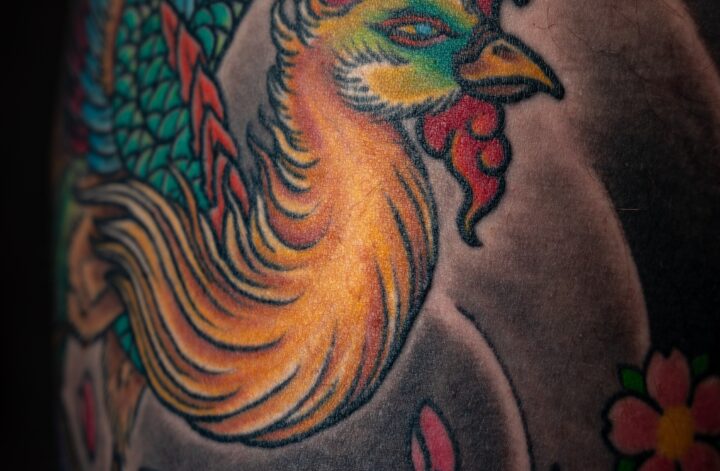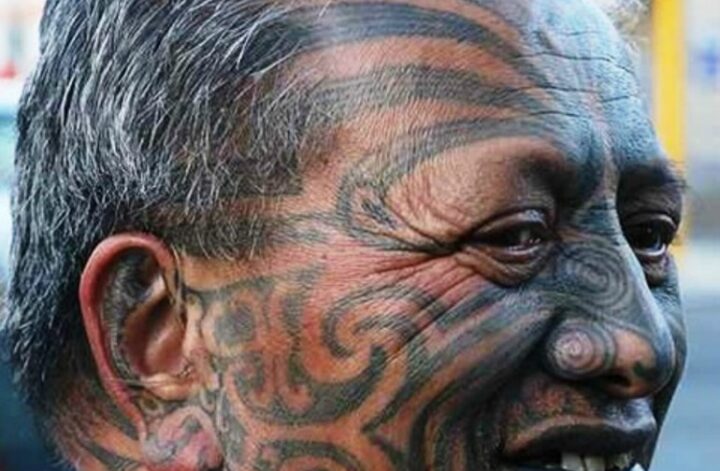Tattoos are more than just skin-deep; they often symbolize our passions, milestones, beliefs, or the story of our lives. But with time, these colorful expressions of self can begin to fade, losing their vibrancy and sharpness. Fret not, for a fading tattoo isn’t an inevitability. With the right care and maintenance, your tattoo can remain as vibrant as the day it was inked. In this guide, we’ll share expert tips and tricks on how to keep your tattoo from fading, helping you preserve your unique piece of body art for years to come.
Color Selection
When it comes to longevity, not all tattoo inks are created equal. The choice of color plays a significant role in how well a tattoo ages. Darker colors like black, navy blue, and deep red tend to hold up better and fade slower than lighter shades. Pastels, yellows, and whites can fade quickly, especially when exposed regularly to sunlight. That’s not to say you should avoid these colors, but be aware that they may require more maintenance to keep them vibrant. When planning your tattoo, discuss color options with your artist. They can provide guidance on which hues will best match your skin tone and lifestyle while still retaining their vibrancy over time.

Immediate Aftercare To Prevent Fading
The first few weeks following your tattoo session are crucial for the longevity and vibrancy of your tattoo. Begin with leaving the protective wrap applied by your tattoo artist on for the recommended time, usually a few hours. Once it’s time to remove the wrap, gently wash the tattooed area with warm water and mild, unscented soap to remove any residual ink, plasma, or blood. Avoid scrubbing the area; instead, use your hands to softly cleanse it. Pat the area dry with a clean towel; don’t rub it.
After cleaning, apply a thin layer of specialized tattoo aftercare ointment, ensuring not to overdo it, as your skin needs to breathe to heal properly. Avoid exposure to sunlight, and refrain from swimming or soaking in water as this can harm your new tattoo. Remember, a new tattoo is essentially an open wound, and it should be treated as such to prevent infection and promote healing.
With proper aftercare, your tattoo should start to heal within two weeks. Be vigilant during this period, keep the area clean, and maintain hydration of the skin with approved ointments to help preserve the quality and vibrancy of your tattoo.
Clothing To Avoid
Avoid wearing tight clothing on or around your new tattoo, especially during the initial healing period. Tight attire can lead to friction, which may irritate the tattooed skin, slow down the healing process, or even cause scabbing. Furthermore, clothing that clings could potentially stick to the tattoo and cause damage when removed. Opt for loose, clean, and breathable garments that allow your new tattoo the space and fresh air it needs for proper and hassle-free healing.
Be Careful In Sunlight
Exposure to sunlight, particularly during the healing process, can be detrimental to your new tattoo. The sun’s ultraviolet (UV) rays can cause the vibrant colors of your tattoo to fade and may even cause skin damage. Protect your tattoo from direct sunlight by covering it with clothing or using a strong, broad-spectrum sunscreen, once it’s healed. Even after the healing period, continue to safeguard your tattoo from the sun to maintain its quality and longevity. Always remember to avoid sunbathing or tanning beds as these can drastically speed up the fading process of your tattoo.
Skincare Routine
Adopting a proper skincare routine is essential to maintain the luster and vibrancy of your tattoo. Once your tattoo has fully healed, it should be incorporated as part of your regular skin regimen. Keep the tattooed skin clean by washing it with a mild, fragrance-free soap, and moisturize regularly with a tattoo-friendly lotion to keep the skin supple and prevent dryness.
Exfoliation should be a part of your skincare routine, but be gentle on your tattooed skin. Use a mild exfoliant and avoid scrubbing the area harshly. This will help to remove dead skin cells and ensure your tattoo retains its bright and fresh appearance.
Remember, healthy skin retains tattoo pigments better. Hence, maintain a healthy lifestyle and diet, staying well-hydrated and nourished. This will not only promote overall well-being but also help maintain the beauty and vibrancy of your tattoo.
Finally, frequent check-ups with your tattoo artist can help ensure that your tattoo continues to look its best. They can provide advice tailored to your skin type and tattoo, ensuring the longevity of your body art.

Conclusion
Properly caring for your tattoo can help ensure that it looks great for years to come. Keep your tattoo clean and moisturized, protect it from the sun and maintain a healthy lifestyle – these simple steps will go a long way in preserving the quality of your artwork. Additionally, regular check-ups with your tattoo artist can lead to even better results. Follow these caring tips and your tattoo will remain vibrant and beautiful for years!
Remember – the better you take care of your skin, the better your tattoo will look. So make sure to look after it and enjoy flaunting your artwork with pride!
Frequently Asked Questions
What makes tattoos fade the most?
Tattoos can fade due to various factors. Sunlight or UV light exposure is a common cause as it breaks down tattoo pigments over time. Protect your tattooed skin with high SPF sunscreen when outside. The natural aging process can also affect tattoo vibrancy. Skin changes over time, losing elasticity and developing wrinkles, which can alter tattoo appearance. Improper aftercare during healing can cause dryness, scabbing, and loss of color and clarity. Certain body areas are more prone to fading, like hands, feet, and lips. Care for your tattoo well to ensure its longevity. Invest in proper aftercare.
How do I keep my tattoo from losing color?
To preserve your tattoo’s color, follow a comprehensive aftercare routine. After getting your tattoo, keep it clean and moisturized with tattoo-specific ointment or lotion as directed by your artist. This promotes healing and hydration. Limit sun exposure and use high SPF sunscreen to prevent significant fading from UV rays. Avoid prolonged swimming in high-chlorine pools or submerging your tattoo. Maintaining a healthy lifestyle with well-hydrated and nourished skin helps retain tattoo colors. Frequent touch-ups maintain vibrancy and detail. Consistent care is essential to protect your tattoo investment.
What tattoo colors stay the longest?
Tattoo longevity largely depends on the ink color used. Generally, black and other dark colors like blue or green outlast lighter shades. Black ink is often used for outlining and contains carbon-based pigments that resist fading. Darker colors have larger pigments, which are harder for the body to break down and remove. On the other hand, lighter colors like white, yellow, or pastel shades may fade faster as they have smaller pigments and are more susceptible to UV light exposure. Remember, the longevity of a tattoo color also depends on individual skin characteristics, tattoo placement, and aftercare.




